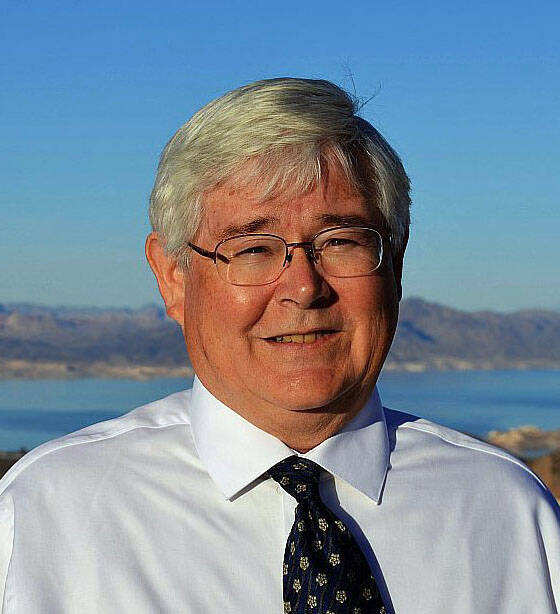
We all make plans. Some are good and make life better for us. Some plans just don’t pan out. Other plans are bad plans but we don’t always know that until some time passes. And then there are plans presented that were never intended to be a plan because there was another plan being put in place that would never have (been) accepted if it had been presented honestly and openly.
We plan for the future because it is the way we can move forward. The Constitution of the United States opens with a clear plan for America.
“We the People of the United States, in Order to form a more perfect Union, establish Justice, insure domestic Tranquility, provide for the common defense, promote the general Welfare, and secure the Blessings of Liberty to ourselves and our Posterity, do ordain and establish this Constitution for the United States of America.”
Boulder City is certainly a community that strives to be better. More than 40 years ago the citizens of Boulder City voted to implement conservative growth to form the type of community desired. Citizens reinforced that mandate to require voter approval for the sale of land and how much debt City Councils could heap on the community.
Planning and zoning of land and properties is the most important method a city has to ensure the community thrives. Boulder City began as a master planned community by the federal government for the construction and operation of Hoover Dam. A plan was developed and implemented to provide residences, businesses and our beautiful parks. The results we now enjoy confirm the wisdom of that plan.
Such a plan also considered that change would occur over time and modifications would be needed. That is the purpose of zoning classifications that determine what uses properties may have to benefit existing property owners.
A proposal has been made for the operation of funeral homes or mortuaries in residential neighborhoods. That type of business is provided for in commercial and industrial zones.
In fact, businesses of all kinds are restricted in residential areas to those that generally serve a neighborhood and have limited uses. Those classifications contribute to residents not being subjected to increased traffic and other annoyances. We don’t have fast-food restaurants built in neighborhoods for good reason.
Mortuaries are similarly not considered a neighborhood or residential business. Many residents have made clear they do not view such a business as one to be located in a residential neighborhood. There are desired and undesired locations for any essential business. When plans are made by business owners, they should think through a solid business plan and not try to force through undesired locations. Location is critical for businesses and businesses should find locations that are best not just for their bank account.
Similarly, former Mayor (Rod) Woodbury opined last month that zoning classifications that seek to preserve the unique history of Boulder City are leaving people out of the process. I am not surprised that is his viewpoint when considering the near total lack of consideration he gave to genuinely supporting preservation efforts.
There are thousands of communities across America that have made their historic districts focal points resulting in increased property values for homeowners and business opportunities for many. Woodbury ignores the many surveys and community meetings where residents have expressed their desire to have zoning classifications that encourage preservation efforts and not the whimsy of some who seek a quick buck before they move on.
I have moved to create a grant program that will assist homeowners to improve the appearance of properties in the historic district that retains the architecture that is valued in these neighborhoods. The idea that decisions will be some sort of burden further shows the lack of effort Woodbury invested in accomplishing what so many residents have asked (for) over decades.
The city will have a certified consulting company providing input on how decisions are made. Just as certified consultants are working with city staff and the advisory committee to develop standards based on national guidelines used in every state.
Residents have been deeply involved in the process and not just those that seek to change the spirit of this community for a profit. If it sounds like a lot of consultants are involved, you may ask the former mayor about the $170,000 consultant report he commissioned to support unwanted growth.
The opinions expressed above belong solely to the author and do not represent the views of the Boulder City Review. They have been edited solely for grammar, spelling and style, and have not been checked for accuracy of the viewpoints.
Kiernan McManus is mayor of Boulder City. He is a native of Boulder City first elected to City Council in 2017.